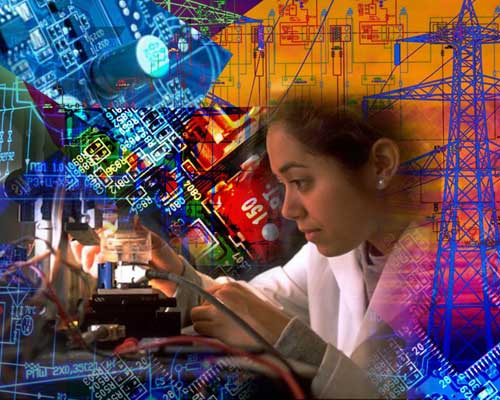As an electrical engineer, staying up-to-date with the latest industry trends and maintaining your technical skills is crucial for career growth. One effective way to achieve this is through Professional Development Hour (PDH) courses. In this article, we will explore PDH courses for electrical engineers and understand their importance in the field of electrical engineering.
Importance of PDH Courses for Electrical Engineers
Continuing education is essential for professionals to stay relevant in their respective fields, and electrical engineering is no exception. PDH courses provide an opportunity for electrical engineers to enhance their knowledge, skills, and expertise. Here are some reasons why PDH courses are important:
Stay updated with the latest industry trends
The field of electrical engineering is constantly evolving, with new technologies, techniques, and regulations emerging regularly. PDH courses offer updated content, enabling electrical engineers to stay abreast of the latest developments in their field.
Improve technical skills
PDH courses provide specialized training in various aspects of electrical engineering, such as power systems, control systems, electronics, and telecommunications. By taking these courses, electrical engineers can sharpen their technical skills and become more proficient in their work.
Maintain professional licensure
Many states and professional organizations require electrical engineers to complete a certain number of PDH courses to maintain their professional licensure. Failing to meet these requirements can result in losing the license, which can have severe consequences for career advancement.
Enhance career growth
Having additional qualifications and certifications through PDH courses can open up new career opportunities for electrical engineers. It can demonstrate their commitment to professional development and make them more competitive in the job market.
Top 5 PDH Courses for Electrical Engineers by PDHexpress.com
As an electrical engineer, staying up-to-date with the latest developments in your field is crucial to maintaining your professional edge. With rapid advancements in technology and changing industry standards, continuing education is essential to enhance your skills and stay competitive in the job market. If you’re looking to further your knowledge and expertise, here are the top 5 continuing education courses for electrical engineers offered by PDHexpress.com.
-
Advanced Power Electronics
This course covers the latest trends and techniques in power electronics, including advanced topics such as multi-level inverters, soft switching techniques, and advanced modulation schemes. You’ll learn about the latest advancements in power electronic devices, control techniques, and applications, providing you with valuable insights to design and optimize power electronic systems for various applications.
-
Electrical Safety in the Workplace
Safety is of paramount importance in the field of electrical engineering. This course provides a comprehensive overview of electrical safety principles, regulations, and best practices in the workplace. You’ll learn about hazard identification, risk assessment, and mitigation strategies, as well as how to comply with OSHA regulations and NFPA standards. This course is essential for electrical engineers who work with high voltage systems or manage electrical safety programs.
-
Renewable Energy Technologies
As the world shifts towards sustainable energy sources, understanding renewable energy technologies is becoming increasingly important for electrical engineers. This course covers the fundamentals of various renewable energy technologies. Such as solar, wind, hydro, and geothermal, and their integration into the power grid. You’ll learn about the design, installation, and operation of renewable energy systems, as well as their economic and environmental impact.
-
Digital Signal Processing
With the proliferation of digital communication systems and advanced sensor technologies, digital signal processing (DSP) has become a critical skill for electrical engineers. This course covers the fundamentals of DSP, including signal analysis, filtering, and modulation techniques. You’ll also learn about advanced topics such as adaptive filtering, spectral estimation, and speech and audio processing. This course provides you with the knowledge and skills to design and implement DSP algorithms in various applications, from telecommunications to multimedia.
-
Electrical Codes and Standards
Familiarity with electrical codes and standards is essential for electrical engineers to ensure compliance with safety regulations and industry best practices. This course covers the latest National Electrical Code (NEC) requirements. As well as other relevant codes and standards such as IEEE, IEC, and NFPA. You’ll learn about wiring methods, grounding and bonding, over-current protection, and other critical topics. This course is ideal for electrical engineers involved in the design, installation, and inspection of electrical systems.
Conclusion
PDH courses play a crucial role in the electrical engineering continuing education. They offer opportunities to stay updated with the latest industry trends. They also improve technical skills, maintain professional licensure, and enhance career growth. By investing in PDH courses, electrical engineers can stay competitive and expand their knowledge. They can and advance their careers in the ever-evolving field of electrical engineering.
Remember to always check the requirements of your state or professional organization for PDH courses, and choose courses that align with your career goals and interests. Whether you are a seasoned electrical engineer or just starting your career, PDH courses can provide valuable insights, knowledge, and skills that can benefit you in your professional journey.



One thought on “Empower Your Engineering Career with PDH Courses for Electrical Engineers”
Comments are closed.